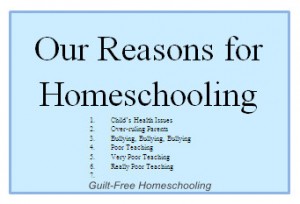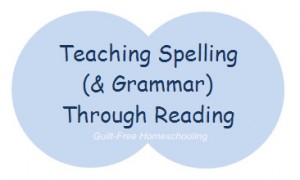“Do your best!” We have all said those words before soccer games and piano recitals, and we usually have said them without any reflection whatsoever upon what we actually might mean by them. “Best” can be a relative term, meaning different things to different people at different times. “Best” varies. Apply the following line of thinking to yourself first, and when you have a handle on it personally, you can better apply it to your children for your expectations of them and for their own expectations of themselves.
Example #1: Hello, my name is Carolyn, and I am a procrastinator. (I do not seek to mock any of the stepped programs for dealing with addictions, but I am simply borrowing their easily recognizable introduction line.) I have a problem; recognizing and acknowledging the existence of my problem is the first step to overcoming it. I have realized that constantly putting things off is harmful to myself and also to those around me. However, I have further realized that I am not always able to deal with everything at the moment it arises.
“Controlled Procrastination” is my new motto — some things will be dealt with immediately, others will be dealt with in a timely manner, when I am able. When I become overwhelmed with too much to do, I try to reprioritize what is most important and decide what can be effectively put off until another time. I then make a mental “contract” with myself that I will accomplish the delayed task (or tasks) by a certain time, date, or circumstance, thereby holding me accountable for the task at another time, but relieving me from the burden of unearned guilt. Knowing that I am not over-burdening myself during times of stress makes it easier for me to accomplish more during easily productive times. I do what I can do, when I can do it, and I free myself from the guilt of trying to do my best best all of the time.
Your best is the best you can do. My best is not your best; your best is not mine. My current best, due to temporary limitations, is not the same as my usual best. Let your current circumstances determine what level of performance you will try to achieve, knowing that at other times that level may change. Trying to maintain an “ideal best” under “less than ideal” circumstances will only heap undeserved guilt upon yourself. In the case that you are surrounded by multiple children under the age of eight, you can expect your best to improve significantly as they age and grow closer to self-sufficiency.
Example #2: I have at least one over-achieving child (ok, both of them, but for now I’m only referring to one). That faithful student seemed to believe that “do your best” meant to take on more than was humanly possible. More than once, I sat down with said child for a refresher course in “only your best is acceptable.” If the student is making his best attempt at the task at hand, that is certainly all that should be expected of him — nothing more.
If my child has worked hard to master memorizing and reciting a three-stanza poem, I must not expect him to recite one of Longfellow’s book-length works. However, since this student and I both know he is capable of memorizing the three-stanza poem, we have equal expectations for his success. Never mind the fact that all the children from the ultra-super-more-than-over-achieving homeschool family will be reciting for hours at the end-of-the-year homeschool program — that is their best, not yours.
Example #3: Young students, especially those still struggling with penmanship, tend to strive for textbook standards of perfectionism. Unfortunately, their efforts are often unsuccessful and result in frustration for both student and teacher. Keep some copies of their previous work to review: seeing actual evidence of his progress will help restore the child’s confidence in himself. During their first years of schooling, children’s handwriting may undergo dramatic changes every few weeks or months. Looking back over past work will show the student how his best has changed.
We all need to recognize the limits of “our best,” whether we are temporarily restrained or continually tempted to perfectionism. If you are pregnant or otherwise constrained by health, have multiple children including toddlers, are changing houses or jobs or involved in other serious life-upheaval situations, bring your standards into alignment with your current reality. Recognize the fact that Wonder Woman was only a two-dimensional fictional character. You, my Guilt-Free friend, are much more than that.





 Guilt-Free Homeschooling is the creation of Carolyn Morrison and her daughter, Jennifer Leonhard. After serious disappointments with public school, Carolyn spent the next 11 years homeschooling her two children, from elementary to high school graduation and college admission. Refusing to force new homeschooling families to re-invent the wheel, Carolyn and Jennifer now share their encouragement, support, tips, and tricks, filling their blog with "all the answers we were looking for as a new-to-homeschooling family" and making this website a valuable resource for parents, not just a daily journal. Guilt-Free Homeschooling -- Equipping Parents for Homeschooling Success!
Guilt-Free Homeschooling is the creation of Carolyn Morrison and her daughter, Jennifer Leonhard. After serious disappointments with public school, Carolyn spent the next 11 years homeschooling her two children, from elementary to high school graduation and college admission. Refusing to force new homeschooling families to re-invent the wheel, Carolyn and Jennifer now share their encouragement, support, tips, and tricks, filling their blog with "all the answers we were looking for as a new-to-homeschooling family" and making this website a valuable resource for parents, not just a daily journal. Guilt-Free Homeschooling -- Equipping Parents for Homeschooling Success!

Recent Comments